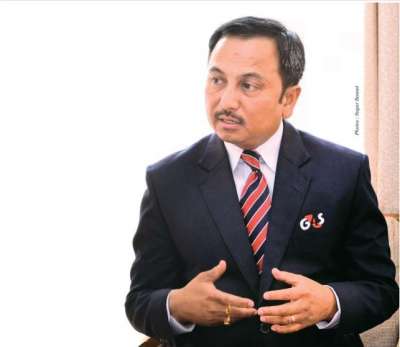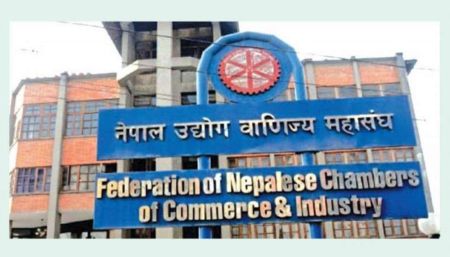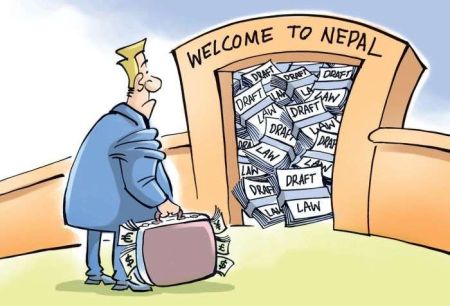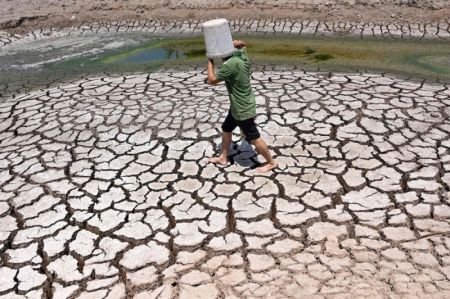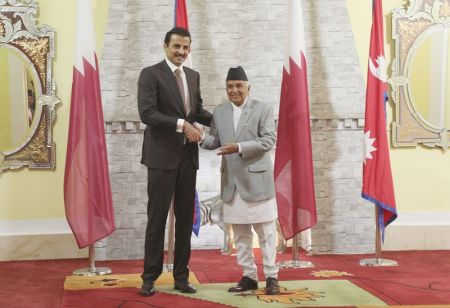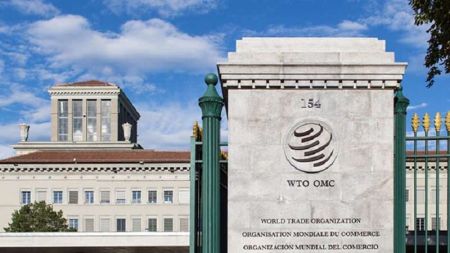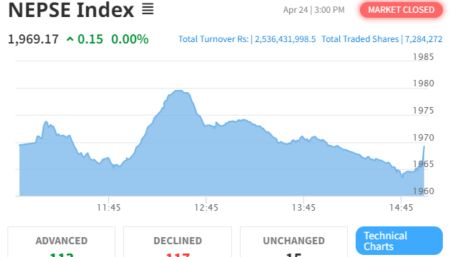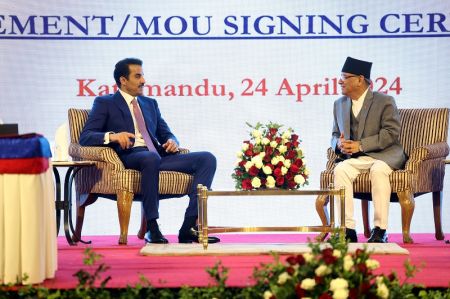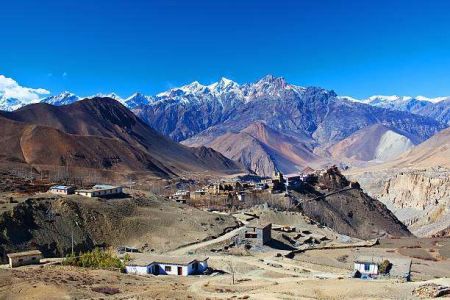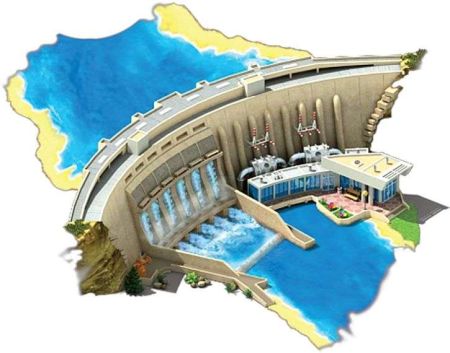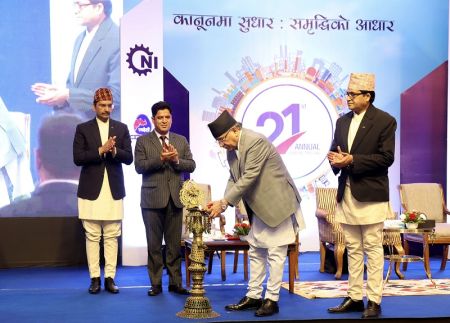'I See Prospects in Herbs, Tourism and of course, Carpet'

Gopal Sunder Lal Kakshapati is the newly elected President of Nepal-German Chamber of Commerce and Industry (NGCCI). Kakshapati, in an interview with Nubiz, says his basic priority would be to revive and maintain the old trade surplus figure that Nepal had been enjoying in the past with Germany, now a key member of the European Union. With the nose-diving of carpet and garment exports, Nepal has nothing much to offer to German market. Still, Kakshapati is hopeful that the branding of some of Nepal's food products such as tea and coffee and attracting more German tourists to Nepal can still help get the old trade figures back. Excerpts:
What is your new vision as the new president of Nepal-German Chamber of Commerce and Industry?
I have segregated it into two parts. The chamber is 18 years old. Some of its legacies I have to carry on. I cannot opt out of the regular programmes the Chamber has been doing. For example, the Chamber has been promoting Nepal's tourism in Germany since 1994. It is called CMT Caravan Motor Touristic. It is a very popular fair in Germany. More than one million people visit the fair each year. So, it must continue. Besides, there are some other regular programmes which I will continue. That is the first part of my aim. As for the new vision, I want to expand whatever economic ties exist between Nepal and Germany. If you look at the overall figures for the past one year or two, our overall trade balance has not been in our favour. But Germany is one country with which we have trade surplus. But the margin of that surplus is now decreasing. I want to bring it back at least to the old figures. That is my main aim.
Germans are looking for new products from Nepal. For example, Nepali tea and coffee have entered into the German market but lack effective branding. I would like to brand it as Nepali tea or Nepali coffee. I see a scope there. Likewise, we are always talking about Nepali herbal and similar products. Herbal is one product which a lot of developed countries are eyeing on. Nepal is so rich in herbal resources. If we produce and market it, Germany would be one of the very popular destinations for these products.
Similarly, besides exporting to Germany, I want to work on capacity building in the country to export different products from Nepal. The Chamber has the past history of such works. For example, it organised a tea seminar in Ilam some years ago. We invited experts from Germany one as the market expert and another as the product expert. These experts directly interacted with the tea producers regarding the choice of taste of Germans and market situation there. That proved very effective. I want to do the same for other products also, for example, herbal, as I have mentioned.
Nepal's herbal products are yet to be processed and branded well. In the case of coffee too, we have to enhance our quality. Today, it is soothing to see professionals involved in coffee production. The bottom-line again is that we have to increase the quantity and improve the quality. When we work with a developed country, quality is always the first priority to have an access into their market.
During my travel to Germany I found that Nepali business community has not been able to explore the existing opportunities in terms of machinery, information, etc. There are only a handful who have done so. I think Nepali businessmen should also go to the expos in the places in Germany so as to learn things and gain expertise. Therefore, I am also in favour of promoting exchange visits of business people between the two countries.
How do you think the Nepal Germany trade relation can be made favourable to Nepal?
As I said earlier, Germany is one country where Nepal has trade surplus. But we should not be content with whatever trade figure we have. The Chamber in the past has worked with DIHL which is the authority in Germany to expand trade relation between any countries. When I visited their office in Germany, I found that they have given very tiny space to Nepal. They showed me the huge trade volume they had with China. Through the exchange of visits and co-work among various chambers in Germany, I think we may be able to increase the trade prospects of Nepal.
Even the European countries are removing Nepal from the list of “preferential trading partner very shortly. How can your Chamber contribute to retaining Nepal's status as a beneficiary of developing country concession of EU?
Yes, I also heard that. It is an agenda for me to talk with the EU representatives in Nepal first and find out what was the reason behind it. There could be so many reasons, and I will work on how to address the situation. First and the foremost, I must know the reasons. After that, we the Chamber and other organisations like the carpet association, etc can lobby together. I will also work closely with German development institutions like GTZ. We, as individual organisations and with others jointly, will lobby to retain our position in the EU.
Nepal-German Chamber of Commerce and Industry is one the oldest bilateral chambers in Nepal. How do you view its achievements?
I think it was the first bi-national chamber in Nepal. The establishment of the Chamber introduced the concept of bi-national chambers in our country. Some 18 years ago, nobody thought of a bi-national chamber could be so important. One of the major achievements of the Chamber is that we have been able to join hands with various German trade bodies and even development agencies like GTZ. The Chamber has enhanced and promoted ties between Nepal and Germany. An example is tourism. The Chamber has been instrumental in the arrival of German tourists in Nepal as well for expanding market of Nepali products such as carpet and garment in Germany. From time and again, we have been taking business delegations to Germany. Such steps are helpful in strengthening trade links.
Most of the economic activities in EU seem to be consolidated under EU umbrella. Do you think the bilateral trade relations of a country like Nepal with individual member countries of EU hold long term importance?
Though EU has certain umbrella policies, bilateral trade relations too hold importance. There are layer of two policies in EU: one is at macro level, i.e., the umbrella policy, and another at the micro-level, i.e., the individual country's policies. Both policies work together. I don't think the situation will change so drastically in a very short period of time. Our chamber has a direct link to the German trade bodies. Of course, there is a big umbrella called EU but within that big umbrella, there are small umbrellas too.
What do you think are the areas Nepal can benefit in the trade with Germany?
If we talk about trade from Germany to Nepal, there are so many factors. We have members who have the business of German medical equipments in Nepal. And there is possibility of cooperation in hydroelectricity development. There are so many other sectors like Information Technology, in which Nepal can attract investments. Germany being a highly developed country, Nepal can learn many things from it.
Despite our almost half a century long trade relation, where do you think Nepal lacked taking advantage from the German market?
I think, what Nepal lacks is its own confidence. The political and social situations, among other factors, are responsible for that. We have not been able to use the potentials that the German cooperation offers to us. A number of joint venture companies have shut down because of our own reasons, such as the lack of security. We have a recent example. One executive member who had been manufacturing garments shifted his office elsewhere from the previous location owing to violence and security lapses. So, there indeed was opportunity which we could not simply tap.
What are the major export items of Nepal to Germany?
If you look at the old data, 80 per cent of the trade is occupied by carpet and garment. Gradually, food market such as tea and coffee is also coming in. Nepal has very limited products to export. We have to increase their quality. We don't have much choice.
What are the challenges in Nepal-German trade?
The most pertinent challenges are seen in the tourism sector. If we compare the data of German tourists arrival in Nepal, it was 45 to 55 thousand in 1998. Now it has decreased to 20 to 25 thousand only. It is the biggest challenge why have we not been able to attract German tourists as in the 1990s or the 80s? Second challenge is on retaining the market for our carpet. Its export has now nosedived compared to the previous years.
Do you have German collaboration in your business too?
My primary business is restaurant and I have investments in a bank, among other sectors. At present, I am working with German companies on new products. So basically I'm a restaurateur. I joined the Chamber in the 1990s, as I was asked to. Earlier, I had a travel agency, so my keen interest is in tourism. So I hope to promote tourism along with other sectors being in the Chamber.
How do you foresee the Nepal-German economic ties in the longer run?
The relation between two countries is of course fundamentally economic and I think this kind of bi-national chamber always helps to promote trade. As of now, we have 22 or 23 bi-national chambers. Nepali business community should have this kind of platform that helps make an easier access into business-related information and facilitation in the counterpart country.
Facts and Figures:
- Germany is one of the biggest export markets for Nepal and ranked 4th after India, USA and Bangladesh. During the FY 2009/10, the Nepali export to Germany could maintain favourable trade position but the export volume decreased by Rs 2,391 million, 14.1 per cent less compared to the previous year.
- Nepal's overall exports declined in FY 2009/10 by 11.1 per cent to Rs 60.9 billion whereas imports continued to increase by 29.1 per cent to Rs 375.6 billion. This development has further widened the overall trade deficit which was about Rs 314.7 billion (+41.5%) in FY 2009/10.
- Due to the decline of exports, the overall Nepal-German foreign trade has also slightly declined in the FY 2009/10. The total bilateral trade fell from Rs 5,029 million to Rs 4,713 million a decline of 6.3 per cent compared to the previous year. Imports from Germany rose by 3.5 per cent compared to FY 2008/09 to Rs 2,322 million.
- Germany is one of the few countries with a positive trade balance for Nepal (after Bangladesh, Bhutan and Canada) although the trade balance came down from a comfortable surplus of Rs 541 million in FY 2008/09 to Rs 69 million in FY 2009/10.
- Exports to Germany In FY 2009/10, the decline of exports to Germany was caused by a decline in Textiles, clothing and accessories (9.6%), Food (19.0%) and Others
Nepal-German Foreign Trade
(52.6%). The export of carpets almost 60 per cent of the total exports to Germany further dropped down from Rs 1.53 billion to Rs 1.42 billion. It was a decline of 6.8 per cent. Germany is one of the biggest export markets for Nepalese carpet industry. It ranked second after the USA. The exports of woolen shawls decreased by 39.7 per cent (Rs 242.1 million) while exports of clothing slightly increased by 3.5 per cent (Rs 270.8 million) in comparison to the previous year. The decline in food exports to Germany were caused by decreasing exports of lentils, coffee and spices while the exports of tea (13.3%) and medical plants further increased. Germany, with an export volume of Rs 33.2 million, is the second biggest export market for Nepalese tea mainly the orthodox tea after India. The exports of paintings came down by 69.4 per cent to Rs 75.4 million.
Imports from Germany In FY 2009/10, the total imports from Germany experienced a slight increase of 3.5 per cent compared to the previous figure of Rs 2.3 billon. The development of the various product categories, however, was quite different. The imports of Machineries and electrical equipments, the major import goods from Germany that stand for more than 50 per cent of the total imports, increased by 7.5 per cent to Rs 1.2 billion. A closer look to this category reveals that Germany is an important supplier for mechanical machineries especially for the packing, printing, food, tobacco and textile sector. The imports of mechanical machineries increased by 2.6 per cent to Rs 932.1 million. And the imports of electrical machineries and equipments increased by 29.7 per cent compared to the FY 2008/09.
The imports of vehicles went up from Rs 6.5 million to Rs 80.4 million. The imports of medical devices and laboratory equipments increased by 13.8 per cent to Rs 275.7 million. And the imports of chemical and pharmaceutical substances and plastic rose by 11.4 per cent to Rs 265.7 million.
(Source: Nepal-German Chamber of Commerce and Industry.)


